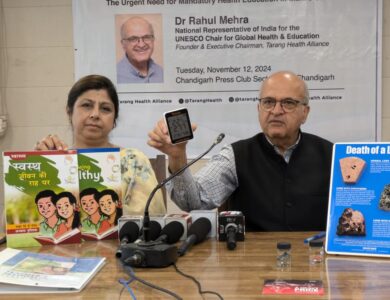Fast, Precise, and Painless: Apollo Hospital Introduces Moses 2.0 for Urology Treatments

Hubballi, January 9, 2024 – Apollo Hospital Seshadripuram, Bengaluru has pioneered a groundbreaking leap in urology care with the introduction of India’s first Moses 2.0 technology. This advanced laser technology is transforming the landscape of kidney stone and prostate removal procedures, rendering them bloodless, painless, and remarkably precise, even for high-risk patients with complex health issues.
Moses 2.0, a modification of the well-established Holmium laser technology, has been in use globally for about 15 years. However, its auto-modulating capabilities to prevent blood clotting and bleeding make it a game-changer in the treatment of kidney stones and prostate enlargement, particularly for patients on blood thinners or anticoagulants. Apollo Hospital Seshadripuram is the first and only institution in the country to possess this cutting-edge technology, positioning itself as a Centre of Excellence for Urology.
Moses 2.0, A High-Power Holmium Laser
Introduced just 12 months ago on the global healthcare stage, Moses 2.0 employs a high-power Holmium laser worth 120 watts. Following installations in the USA and China, India has now become the third country to embrace this revolutionary technology at Apollo Hospital, Seshadripuram.
In urology treatments, Moses 2.0 is utilized in two distinct applications – Moses Laser Technology Fragmentation (MLTF) for kidney stones and Moses Laser Enucleation of the Prostate (MOLEP) for prostate enlargement.
Dr. Manohar T, Chief of Urology, Uro Oncology & Kidney Transplantation, Laser, Laparoscopic, Transplant, and Robotic Surgeon at Apollo Hospital Seshadripuram, and Director of Apollo Institute of Renal Sciences (AIRS), explains the profound benefits of Moses 2.0. Procedures conducted with this technology are endoscopic, avoiding the need for incisions. Notably, it can treat kidney stones and prostate of any size with minimal invasion. The laser ensures complete treatment of kidney stones, leaving no residual bits, and removes up to 90% of the prostate, a substantial improvement over conventional methods.
One of the key advantages is its applicability to patients with multiple health risks such as hypertension, diabetes, cardiac issues, and those recovering from complex surgeries. Earlier, surgeries required patients to halt blood thinners for 5 to 7 days, posing potential health risks. Moses 2.0 eliminates this requirement, offering a bloodless, painless, and scar-free solution with reduced hospital stays and quicker recovery times.
Dr. Manohar T, the principal investigator on Moses 2.0, highlights the technical complexity of the technology, requiring extensive training for surgeons. Over the past 12 months, 136 surgeries have been successfully conducted using Moses 2.0, and a structured training program has been in place at Apollo Hospital, Seshadripuram for the past two years. Surgeons from various countries, including the UK, Sri Lanka, Singapore, Nepal, and Bahrain, come to the hospital for hands-on training using advanced simulators imported from the USA.
As an innovative extension, the hospital has utilized Moses 2.0 technology to treat bladder cancers, particularly in high-risk patients. The comprehensive training program ensures that surgeons gain proficiency by observing, assisting, and eventually performing cases independently, making surgeries faster, accurate, and precise.
The introduction of Moses 2.0 at Apollo Hospital Seshadripuram marks a significant milestone in urology care, reaffirming the hospital’s commitment to pushing the boundaries of medical technology for the benefit of patients worldwide.








